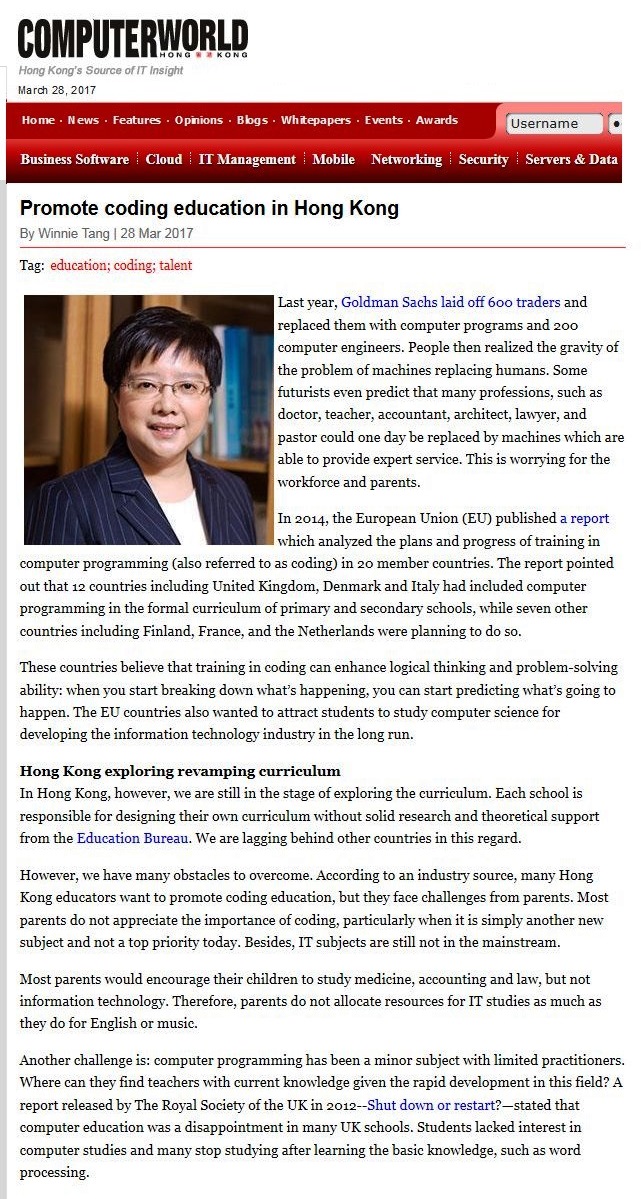網上版請按此

Promote coding education in Hong Kong
Last year, Goldman Sachs laid off 600 traders and replaced them with computer programs and 200 computer engineers. People then realized the gravity of the problem of machines replacing humans. Some futurists even predict that many professions, such as doctor, teacher, accountant, architect, lawyer, and pastor could one day be replaced by machines which are able to provide expert service. This is worrying for the workforce and parents.
In 2014, the European Union (EU) published a report which analyzed the plans and progress of training in computer programming (also referred to as coding) in 20 member countries. The report pointed out that 12 countries including United Kingdom, Denmark and Italy had included computer programming in the formal curriculum of primary and secondary schools, while seven other countries including Finland, France, and the Netherlands were planning to do so.
These countries believe that training in coding can enhance logical thinking and problem-solving ability: when you start breaking down what's happening, you can start predicting what's going to happen. The EU countries also wanted to attract students to study computer science for developing the information technology industry in the long run.
Hong Kong exploring revamping curriculum
In Hong Kong, however, we are still in the stage of exploring the curriculum. Each school is responsible for designing their own curriculum without solid research and theoretical support from the Education Bureau. We are lagging behind other countries in this regard.
However, we have many obstacles to overcome. According to an industry source, many Hong Kong educators want to promote coding education, but they face challenges from parents. Most parents do not appreciate the importance of coding, particularly when it is simply another new subject and not a top priority today. Besides, IT subjects are still not in the mainstream.
Most parents would encourage their children to study medicine, accounting and law, but not information technology. Therefore, parents do not allocate resources for IT studies as much as they do for English or music.
Another challenge is: computer programming has been a minor subject with limited practitioners. Where can they find teachers with current knowledge given the rapid development in this field? A report released by The Royal Society of the UK in 2012--Shut down or restart?—stated that computer education was a disappointment in many UK schools. Students lacked interest in computer studies and many stop studying after learning the basic knowledge, such as word processing.
Dr. Winnie Tang
Honorary Professor, Department of Computer Science, The University of Hong Kong